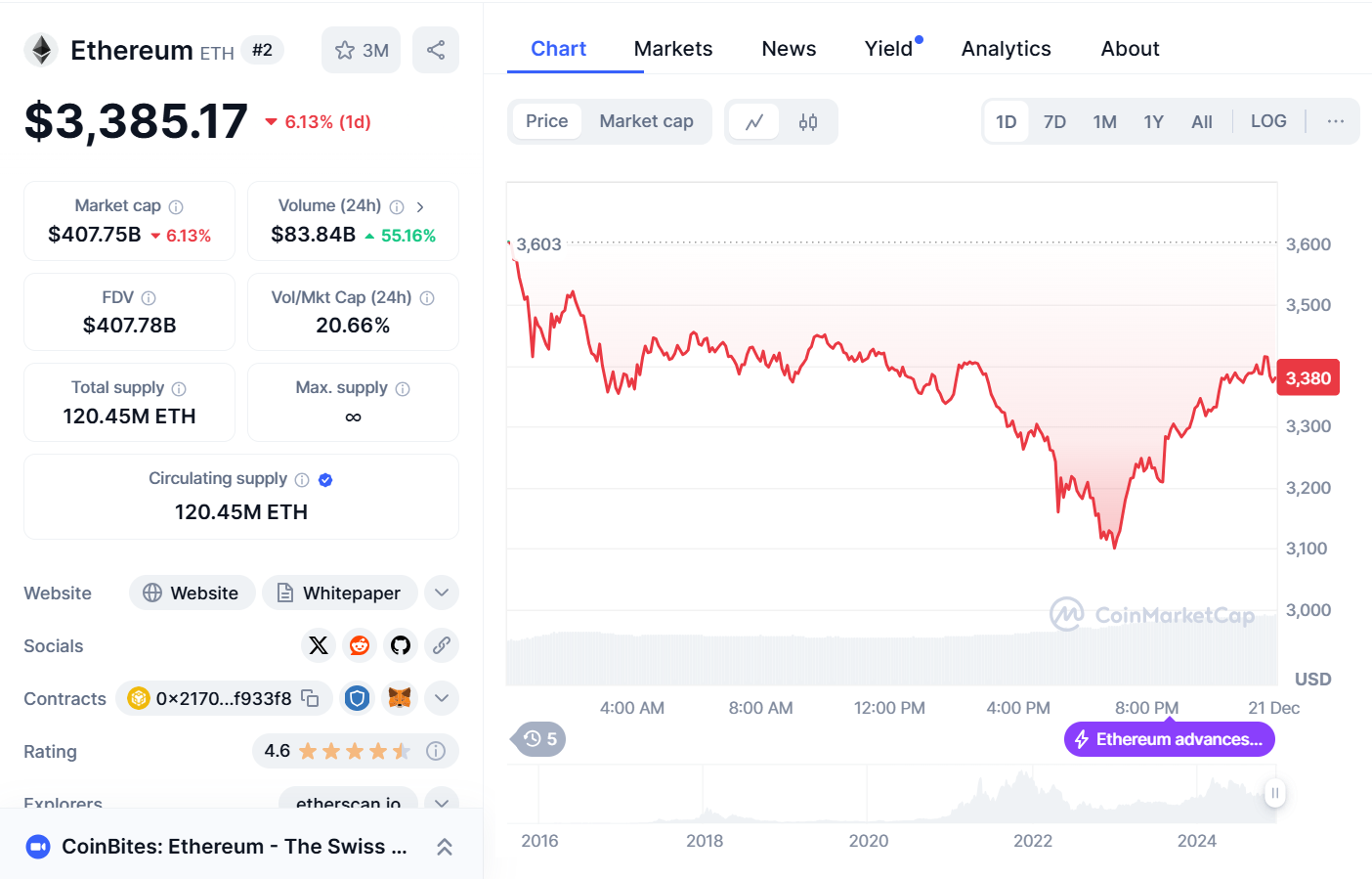On December 20, 2024, the U.S. Securities and Exchange Commission (SEC) approved the Hashdex Nasdaq Crypto Index US ETF and the Franklin Crypto Index ETF, signaling a pivotal moment for cryptocurrency’s integration into traditional financial markets. These ETFs, listed on the Nasdaq and Cboe BZX Exchange, will directly hold spot bitcoin, ether, and cash equivalents, bringing digital assets closer to mainstream investment portfolios while ensuring enhanced security and regulatory oversight.
Bridging the Gap Between Crypto and Traditional Finance
Nasdaq and the Cboe BZX Exchange have revised their rules to accommodate the listing and trading of exchange-traded products (ETPs) linked to spot bitcoin and ether. By enabling these offerings, the exchanges aim to increase accessibility and foster investor confidence in cryptocurrency markets. This move reflects an ongoing effort to integrate digital assets into the broader financial ecosystem, minimizing risks of fraud and market manipulation.
The Hashdex Nasdaq Crypto Index US ETF and Franklin Crypto Index ETF represent a significant step forward. By holding spot bitcoin and ether directly, they provide investors with exposure to these digital assets without requiring them to manage private keys or navigate the complexities of crypto wallets. This simplifies the process for traditional investors while maintaining transparency and regulatory compliance.
🚨BREAKING: 🇺🇸 US SEC Approves Hashdex & Franklin Crypto Index ETFs! 🔥
📊 80% BTC | 20% ETH — Launch Expected January. A Game-Changer for Crypto ETFs! 🚀 pic.twitter.com/7kSU2LOaHA
— Crypto India (@CryptooIndia) December 20, 2024
The SEC’s Regulatory Framework
The SEC’s approval underscores its commitment to protecting investors and ensuring market integrity. These ETFs are subject to stringent regulations, including the Securities Exchange Act of 1934, the Securities Act of 1933, and the Investment Company Act of 1940. These legislative frameworks govern securities trading, issuance, and investment products, ensuring fairness, transparency, and investor protection.
Additionally, the Commodity Exchange Act (CEA) regulates financial products linked to commodities such as bitcoin and ether. This layered regulatory approach ensures that the new ETFs align with established guidelines, minimizing risks for investors and maintaining the integrity of the financial system.

Surveillance and Market Manipulation Prevention
A key aspect of the SEC’s approval process is the prevention of fraud and market manipulation. The Commission has emphasized the necessity of surveillance-sharing agreements between exchanges to detect and deter fraudulent activities. By monitoring correlations between spot and futures markets, the SEC ensures that any irregularities in the spot market are identifiable through the more regulated futures market.
Historically, the SEC’s confidence in approving bitcoin and ether-based ETPs has hinged on the strong correlation between spot and futures markets. The CME’s bitcoin and ether futures markets have demonstrated this correlation, providing a reliable basis for the SEC to monitor and supervise these assets effectively. The approval of the Hashdex and Franklin ETFs reflects the SEC’s belief that these products meet all necessary regulatory requirements.
Related news: ASIC Sues Binance for Misclassifying 83% of Clients: A Crypto Regulation Crackdown








